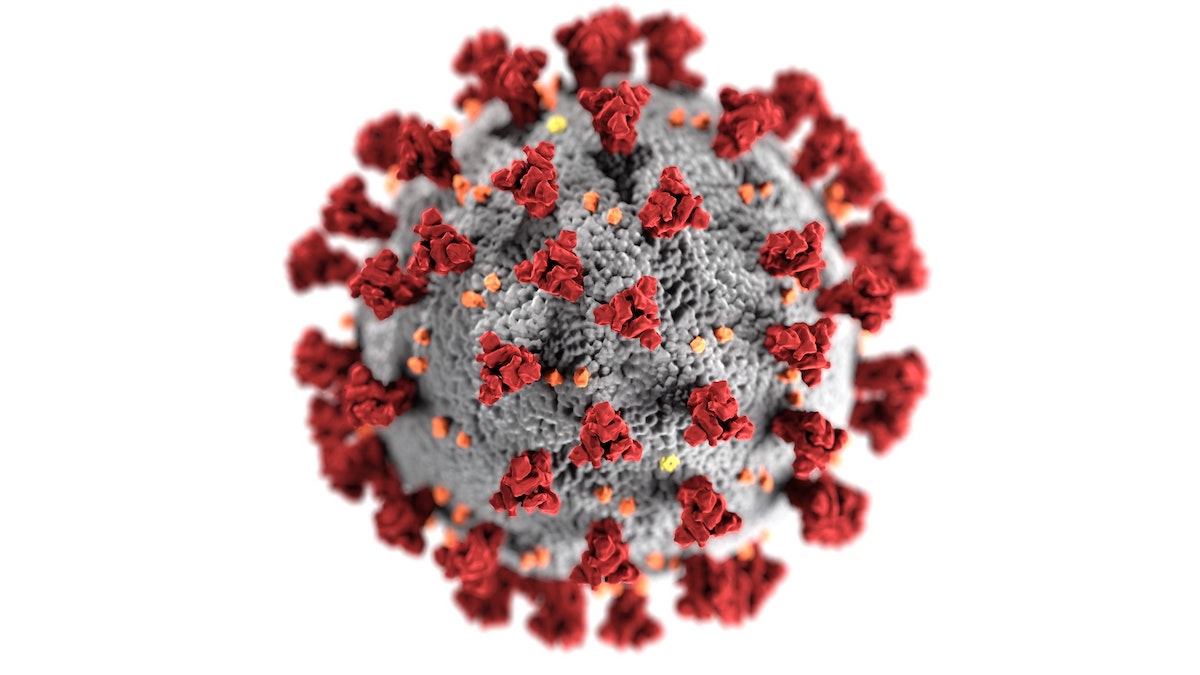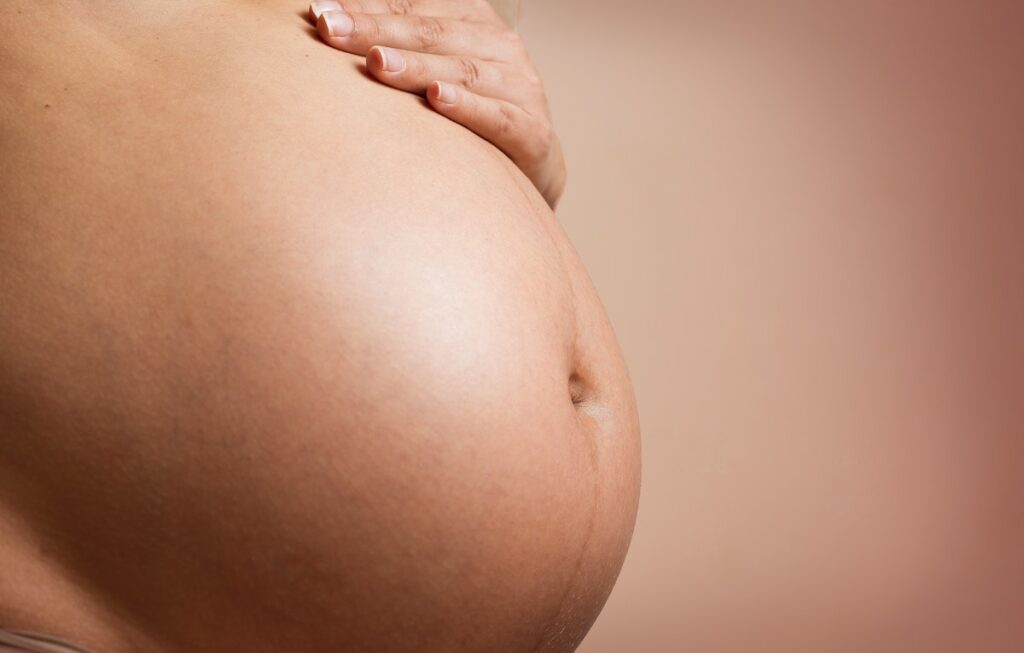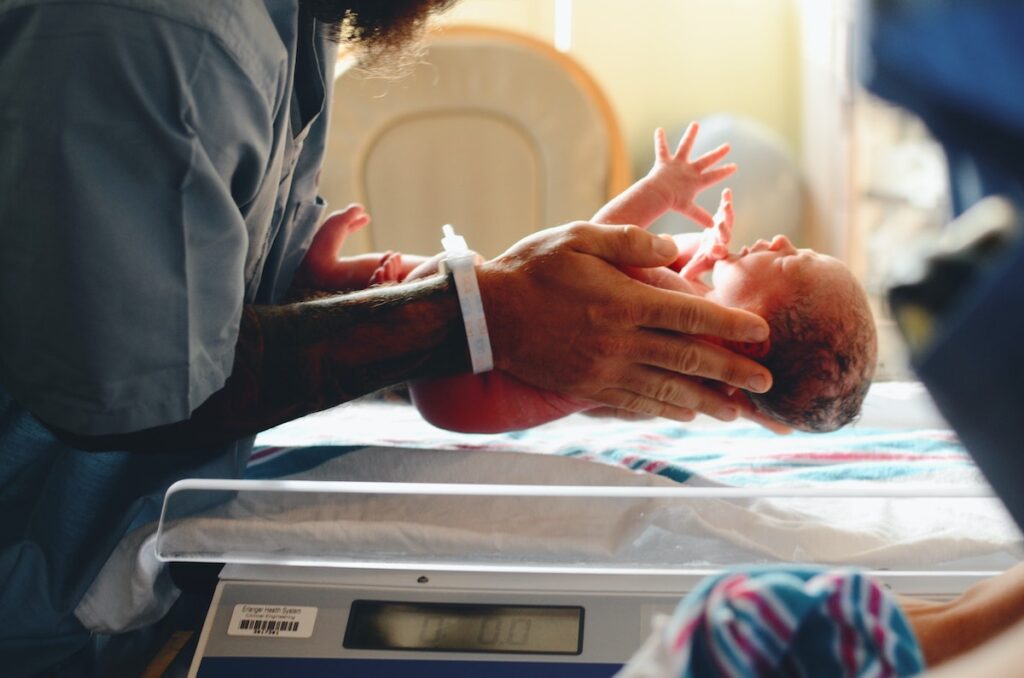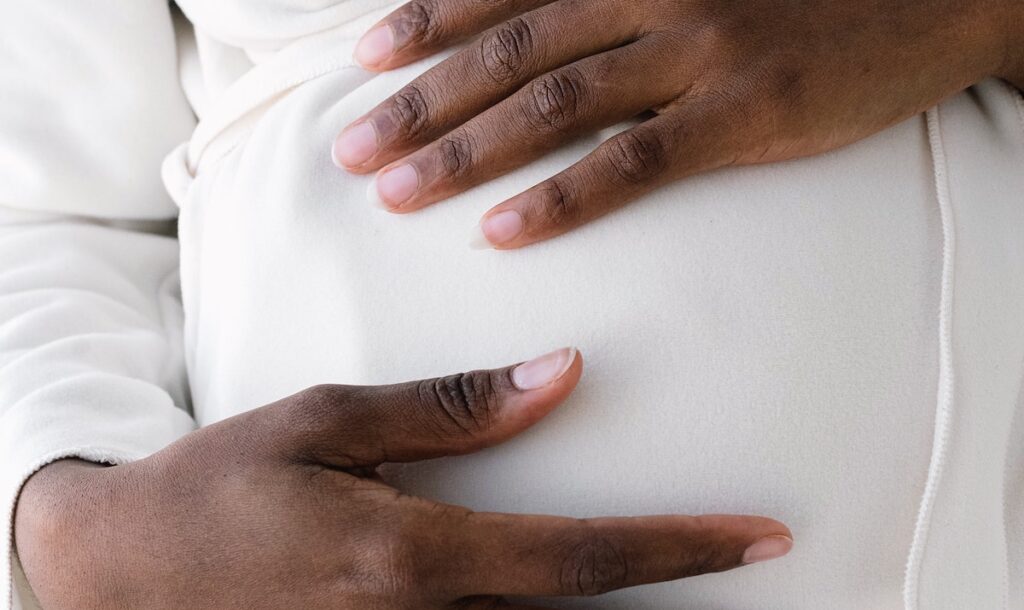As the pandemic continues to evolve, our knowledge of COVID and its effects on pregnancy continues to expand. We’ve taken the latest data and research and answered the most frequently asked questions we hear about pregnancy and COVID.
How does COVID affect pregnancy outcomes?
Increasing evidence and clinical experiences indicates an increased risk of complications for both the mother and child. Some of the risks include:
Maternal risks:
- Severe covid infection
- Hospitalization
- Intubation
- Increased risks of morbidity and mortality
- Blood clots
Fetal risks:
- Placental dysfunction
- Preterm delivery
- Stillbirth
- Increased risk of NICU admission
- Increased risk of maternal-child separation
A recent JAMA article indicates pregnant women with COVID-19 are 15 times more likely to die, 14 times more likely to need to be intubated, and 22 times more likely to have pre-term birth than those who are uninfected. (Chinn J, Sedighim S, Kirby KA, et al. Characteristics and Outcomes of Women With COVID-19 Giving Birth at US Academic Centers During the COVID-19 Pandemic. JAMA Netw Open. 2021;4(8):e2120456. doi:10.1001/jamanetworkopen.2021.20456)
Does COVID increase the risks of birth defects?
Currently available evidence seems to suggest the risk of birth defects is not increased in women with COVID compared to those without infection.
I am getting ready to deliver and tested positive for COVID. Can I breastfeed my baby?
The American Academy of Pediatrics does not recommend routine maternal-infant separation in women with COVID in which mild symptoms are present. This includes allowing an otherwise healthy, term infant the ability to room in with their parent, breastfeed, etc. However, methods to decrease the risk of exposure to the newborn, including frequent hand washing, and mask use, are recommended.
I am pregnant. Is the COVID vaccination safe in pregnancy?
Both the American Congress of Obstetrics and Gynecologists and the Society of Maternal-Fetal Medicine recommend COVID vaccination during pregnancy. Both the Pfizer and Moderna vaccine have documented over 139,000 pregnancies to date without complications among vaccinated pregnant women. This number is likely an underestimation.
You can use the following link to read the full statement from the Society of Maternal-Fetal Medicine here.
Can’t I still contract COVID-19 after vaccination?
Yes. However, the risk of severe disease and death are decreased by 99% in the vaccinated population. Given the implications to the unborn child, mother, and entire family unit with maternal COVID-19 infection among unvaccinated mothers is the reason vaccination is recommended.
I’ve already had COVID-19? Am I eligible for vaccination?
Yes. It is recommended that individuals interested in receiving vaccination post COVID infection wait at least two weeks after infection. Available evidence suggests natural immunity begins to decrease 90 days after infection, therefore, many elect to receive vaccination between 14-90 days after a prior infection.
What are other strategies to decrease the risk of COVID-19 complications?
Vaccination and mask use is not a substitution for improving baseline health and wellness. A healthy pregnancy centers on strategies such as:
-Consumption of real foods (e.g. decreasing intake of packaged foods, seed oils, high fructose corn syrup, etc.)
-Healthy weight gain (approximately 50% of women gain more weight than recommended, predisposing them to increased risks of preeclampsia, gestational diabetes, cesarean delivery, etc.)
-Regular physical activity: Many women decrease physical activity in early pregnancy because they are concerned about impacting their babies. Women who maintain regular physical activity during pregnancy have improved outcomes compared to those who are sedentary. Exercise can be modified each trimester to accommodate the growing uterus.
-Gut rest: Frequent night eating increases systemic inflammation and negatively impacts gut health.
What should I expect for the rest of my pregnancy after recovering from COVID-19?
As the pandemic is ongoing, guidelines for follow up are mainly based on expert opinion as clinicians and researchers continue to gather information on the illness. Variations in follow up will likely vary by region and medical practice. Due to the increased risks of blood clots and placental dysfunction, our team will evaluate your current pregnancy health and medical conditions to provide recommendations to your primary team.
Contact Us
We are leaders in maternal fetal medicine, offering state-of-the-art screenings and tests, as well as advanced ultrasounds and monitoring options to reduce your risk before and during your pregnancy.
Whether you have medical concerns before getting pregnant or find out you or your baby are at a higher risk after conception, Perinatal Specialists of Kansas City can help. Contact us at (913) 291-0069 to book your first appointment.
Citation links:
Weight Gain During Pregnancy | Pregnancy | Maternal and Infant Health | CDCChinn J, Sedighim S, Kirby KA, et al. Characteristics and Outcomes of Women With COVID-19 Giving Birth at US Academic Centers During the COVID-19 Pandemic. JAMA Netw Open. 2021;4(8):e2120456. doi:10.1001/jamanetworkopen.2021.20456



